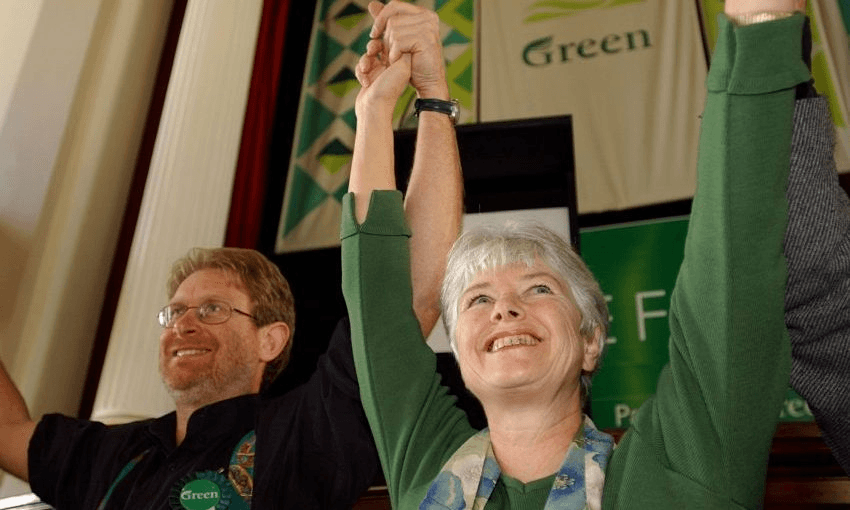Good morning, and welcome to The Bulletin. In today’s edition: Greens urged to bail out of waka–jumping bill, midwives go marching, and governance weirdness at Canterbury DHB comes to light.
Submissions have continued on the controversial waka-jumping bill, with huge opposition to the proposal. The bill would mean a party would have the right to remove and replace an MP from Parliament, if the MP left the party or was expelled. It is part of the coalition agreement between Labour and NZ First. You can read one of the submissions, signed by 19 legal and political studies academics, here on Pundit. It’s long, so to paraphrase, they really, really hate it.
The NZ Herald reports former Green co-leader Jeanette Fitzsimons is “deeply distressed” by the bill, and hopes her party decides to vote against it. She also wrote about it for The Spinoff. It has become something of a wedge issue for the Greens, who could defeat the bill if they chose to vote against it, but doing so would anger their coalition partners. It is particularly unpopular among the activist base, and both candidates in the recent co-leadership race voiced serious concerns about the bill.
The bill is largely being driven by NZ First and Winston Peters, and he put his support for it in print for Stuff back in January. His argument is basically that as the party vote sets the proportionality of Parliament, an MP leaving a party can distort whether the wishes of voters are being properly expressed. Politik reports that it’s a key bottom line for Mr Peters, as looking at the numbers, NZ First has been most affected by party hopping MPs. There are still two Parliamentary votes for the bill to get through.
Midwives have marched across the country in protest at low pay and difficult conditions. Newshub reported on the march in Wellington, which included the delivery of a 12,000 strong petition. At the heart of the problem is funding – the midwives have been crying out for more money for years now, and are pushing the government to adopt a new funding model that would address pay equity and help alleviate staff burnout.
The midwives also marched past our office in Auckland, and sounded like they were in fine voice. Don Rowe went down to have a look, and reported that spirits were high, despite the anger at feeling ignored. Here’s a stat that puts it in perspective – for some births, midwives have an effective take–home pay rate of just over $7 an hour.
Radio NZ‘s Checkpoint show has revealed some absolute governance weirdness with the Canterbury District Health Board. A health ministry official drafted a letter to the CDHB chair Murray Cleverley, who then copied and pasted that letter onto his stationery and sent it to the health and finance ministers, who at the time were Jonathan Coleman and Bill English respectively. Essentially, the letter said the cash strapped CDHB could cope with the amount of funding they had, despite most of the board members strongly disagreeing with that assessment.
BP executives have gone to Parliament to try and convince the energy minister their under-fire pricing strategies were fair. But Radio NZ reports minister Megan Woods remains unconvinced that the petrol marking is working for motorists, and that it is an industry-wide problem. Meanwhile, on a completely unrelated note, Z Energy has posted a record profit, reports the NZ Herald.
Pre-budget speeches are underway, with PM Jacinda Ardern yesterday telling Business NZ that “significant” investments in core services are about to be made. A section of video of the speech is on the One News website. Today, housing minister Phil Twyford will be making a pre-budget speech on homelessness at Te Puea Marae in Mangere.
Calls for some form of inquiry into banking in NZ continue to grow. Radio NZ is reporting bank customers are coming forward to make complaints about various hard-sell type tactics. But the new boss of BNZ Angela Mentis told the NZ Herald an inquiry is not needed, and has provided evidence to regulators to prove the bank is behaving ethically with customers. Calls for an inquiry will likely continue for at least the duration of Australia’s Royal Commission into banking, given most of NZ’s banks are owned by parent companies over the ditch.
The ODT reckon they’ve nailed down the site of where the new Dunedin hospital will be, with the long running saga set to come to an end today. It is understood to include part of the old Cadbury factory in central Dunedin. A formal announcement will be made at 11.00am.
Rotorua Lakes Council has voted to axe funding for the controversial Mudtopia festival, reports the Rotorua Daily Post. The festival was dogged by heavy financial losses, a furore over imported mud, and dismal ticket sales. Mayor Steve Chadwick suggested some people had wanted the event to fail, and had sabotaged it with negativity.
An update to yesterday’s story about NZ not getting an exemption on steel tariffs from the USA – trade minister David Parker says the government is now considering taking a case to the World Trade Organisation. The NZ Herald reports Parker is still unsure what the principle behind ignoring NZ’s request is.
If a case is to be taken to the WTO, it may have to be sooner rather than later. Politico recently reported that there are strong fears in the European Union that the Trump administration wants to abolish the WTO, and reshape trade in its own economic interests.
The Bulletin is The Spinoff’s acclaimed, free daily curated digest of all the most important stories from around New Zealand delivered directly to your inbox each morning.
